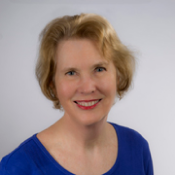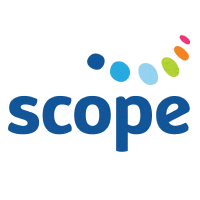Disability, Diversity and Inclusion Initiative
About us
We want to create and foster safe and socially just futures, where people with disability have access, are included and their diversity valued in all facets of social, political, and economic life.
Our mission is to produce high-quality research, and undertake teaching, engagement and service activities that influence government policy, inform the development of services, and supports for people with disability, and shape community attitudes.
We are committed to centering the voices, experiences and expertise of people with disability across the life and activities of the Initiative. This includes creating opportunities for and fostering the development of people with disability within and beyond the University of Melbourne.
Our Values
Diversity
Identifying and valuing different knowledges, experiences and ways of being among and between communities of people. This work includes an emphasis on changing community attitudes that are disablist and/or ableist.
Collaboration
Recognising the value of working in collaboration across disciplinary and organisational boundaries to address key challenges in disability policy and practice. This includes a commitment to working in collaboration with people with disability, as well as working in collaboration with key parties including The Melbourne Disability Institute, other disability-focused entities across the University, and our key partners in government and the community sector.
Social Justice
Identifying and addressing inequity and discrimination in social, political and economic life. This work includes attending to interlocking systems of oppression and inequality, and supporting the development of equality-focused, evidence-informed policy, services and other supports.
Inclusivity
Creating the conditions where people are safe and welcome to be themselves and express all intersecting aspects of their identity. This work includes attending to issues of access as well as ensuring representation in all facets of social, political and economic life, including university life.
News and Events
Keep up to date with our latest news and events
People
We are an outstanding research team with a strong expertise in disability, diversity and inclusion research.

Professor Keith McVilly is the Scope-University of Melbourne Professorial Fellow in Disability and Inclusion. Working across the university, he is situated in the School of Social and Political Sciences. Professor McVilly is an internationally renowned clinical psychologist whose work addresses the translation of research into policy and practice, with a focus on promoting the wellbeing and community inclusion of people with multiple and complex disabling experiences. His work reflects the centrality of relationships to wellbeing. Much of Keith’s research is conducted in applied settings, working directly with people with disability, families and services providers.

Dr Paul Ramcharan is the Scope-University of Melbourne Senior Research Fellow. He has been involved in disability policy research for over thirty years. His work in Australia has encompassed disability advocacy and self-advocacy; the development of a Roadmap for the reduction of restrictive practices, choice making, voting and intellectual disability, inclusive research, co-production and, community development and disability. He has also been involved in a number of training initiatives and has held a number of leadership positions related largely to research commissioning. Paul has co-authored two books, two edited collections, many journal articles as well as delivering a number of plain language documents to suit different audiences. He has recently completed work on the impact of the NDIS on disability advocacy in Victoria and has undertaken consultancy work supporting advocacy organisations to make submissions to the Royal Commission into Violence, Abuse, Neglect and Exploitation of people with disabilities.

Dr Carmel Laragy is the Scope-University of Melbourne Senior Research Fellow in Community Partnerships. She has expert knowledge in the fields of disability and aged care regarding the provision of services using individual funding. Carmel has studied the introduction of individual funding programs nationally and internationally since the early 2000s. These include the National Disability Insurance Scheme (NDIS) and Consumer Directed Care (CDC) in aged care. She has evaluated national programs and published widely nationally and internationally. Carmel is on the committee of management of Action for More Independence & Dignity in Accommodation (AMIDA), a self-advocacy service for people with intellectual disability; and convenes a peer support group for social workers navigating the NDIS and CDC programs.

Julie Anderson is the Scope-University of Melbourne Partnership Coordinator. She provides high level executive support for the Partnership between the University of Melbourne and Scope and is responsible for the administration of the Memorandum of Understanding, the development of research and other collaborations, organising external events and functions and providing support to Professor McVilly and Dr Ramcharan.
Research
Our research looks at three aspects of disability, diversity, and inclusion with approaches:
- Exploring collaborations – we recognise the value of working with others across disciplinary and organisational boundaries to address key challenges in disability policy and practice. There are a range of internal and external parties to the University of Melbourne we will continue to explore opportunities for collaboration moving forward. This includes priority partners to the School of Social and Political Sciences such as Scope (Aust) Ltd., the Brotherhood of St Laurence, and the Melbourne Disability Institute, as well as other organisations.
- Walking the walk – we are committed to centring the voices, experiences, and expertise of people with disability. It is crucial that this commitment becomes a reality over the short, medium and long term. This involves engaging with interested collaborators on workshops with disability to guide the priority areas for the Initiative, as well as establishing and financially supporting number of people with disability to inform, shape and support the full range of Initiative activities, including the provision of research assistance.
- Produce research, teaching, engagement and university-enhancement activities – we are pursuing key strategic activities that will support our goals, such as creating a home for disability-focused research in the Faculty of Arts, developing the next generation of disability studies researchers, embedding disability in our teaching, delivering training and custom education for the disability sector, targeting public engagement, and informing the rollout of the University of Melbourne’s Diversity and Inclusion Strategy 2030.
Publications
Books and book chapters
- Diana Johns, Catherine Flynn, Maggie Hall, Claire Spivakovsky, & Shelley Turner (2022). Co-production and criminal justice. Routledge. https://doi.org/10.4324/9780429328657
- Christina David, Carmel Laragy, & Elizabeth Hudson (2021). Individual Funding for People With Mental Health Issues: Opportunities, Tensions, and Outcomes. In Research Anthology on Mental Health Stigma, Education, and Treatment (pp. 519-532). IGI Global.
Reports
- Dinesh Wadiwel, Claire Spivakovsky, & Linda Steele (2023). Restrictive practices: A pathway to elimination. Royal Commission into Violence, Abuse, Neglect and Exploitation of People with Disability.
- Keith McVilly, Susan Ainsworth, Lorraine Graham, Matthew Harrison, Victor Sojo, Claire Spivakovsky, Lindsey Gale, Anna Genat, & Tessa-May Zirnsak (2022). Outcomes associated with “inclusive”,“segregated” and “integrated” settings: Accommodation and community living, employment and education. Royal Commission into Violence, Abuse, Neglect and Exploitation of People with Disability.
Journal articles
- Eli Cohn, Keith McVilly, & Matthew Harrison (2023). Echolalia as defined by parent communication partners. Autism & Developmental Language Impairments, 8, 23969415231151846.
- Christina David, Belinda Johnson, & Paul Ramcharan (2023). NDIS partnership working? Paradoxes, contested spaces and aspirations of disability leaders, family carers and disability services. Australian Journal of Social Issues.
- Dearn, Elroy, Paul Ramcharan, Penelope Weller, Lisa Brophy, & Katherine Johnson (2023). Supported residential services as a type of “total institution”: Implications for the National Disability Insurance Scheme (NDIS). Australian Journal of Social Issues, 58(2), 279-295.
- Cathy Humphreys, Louis Novy, Natalie Cergovski, Hoi Ching Lai, & Keith McVilly (2023). The Impact of COVID-19 Lockdown on Parents and Young People With Autism Spectrum Disorder (ASD). Australian Social Work, 1-13.
Partners

Scope
Scope is one of the largest not-for-profit disability service providers in Australia, supporting thousands of people with complex intellectual, physical, and multiple disabilities. The Scope – University of Melbourne Partnership is a collaboration that draws upon the interdisciplinary expertise of staff from both University of Melbourne and Scope Australia.
Contact
If you feel interested in our initiative, please get in touch with us via our emails:
- Professor Keith McVilly: keith.mcvilly@unimelb.edu.au
- Dr Paul Ramcharan paul.ramcharan@unimelb.edu.au
- Dr Carmel Laragy carmel.laragy@unimelb.edu.au
- Julie Anderson julie.anderson@unimelb.edu.au